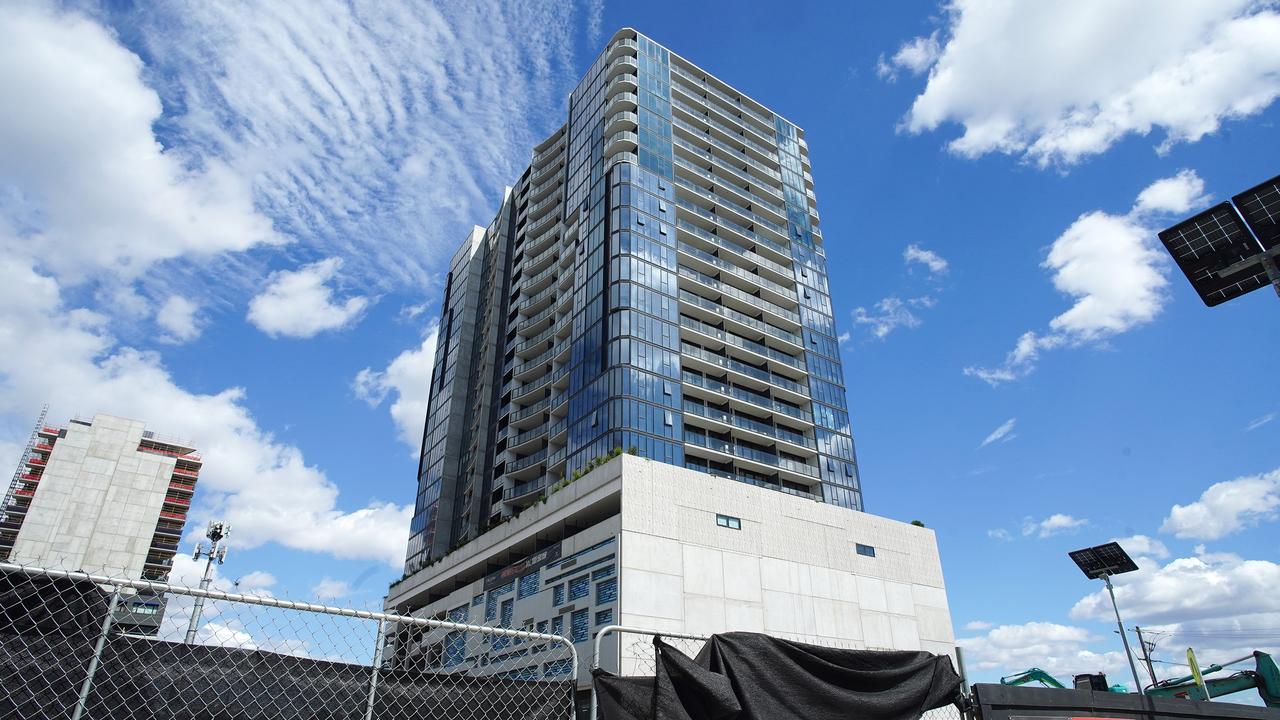Anthony Albanese’s first year as Prime Minister: The 19 areas he’s succeeded or failed
While there are 13 areas Anthony Albanese has made progress with during his first year as Prime Minister, there’s another six he’s been accused of breaking promises for.
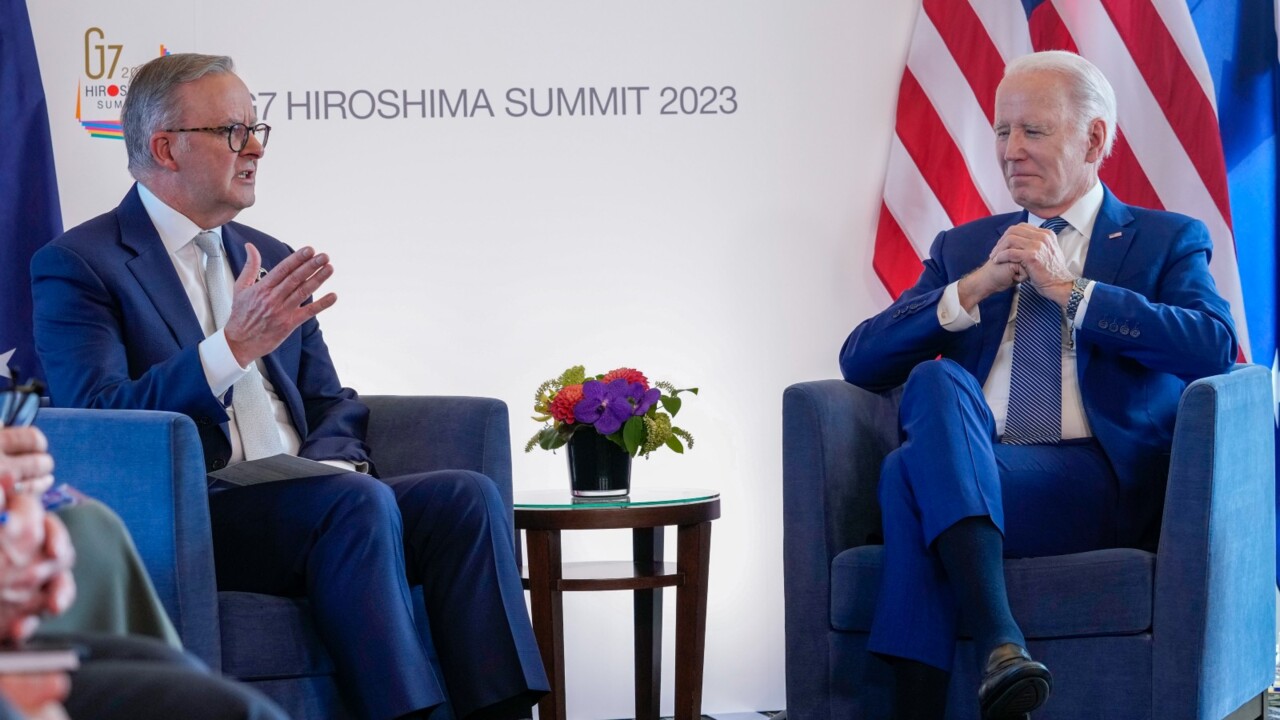
News
Don't miss out on the headlines from News. Followed categories will be added to My News.
It’s now ticked over to one year since Anthony Albanese was elected Prime Minister.
And while the government has been trumpeting the fact more Australians are in work since they came into office, Oppposition leader Peter Dutton has blasted them for breaking key election promises.
“We’ve got a cost of living crisis under this government and families and small businesses are doing it tough, yet this government doesn’t have an economic plan to deal with it and instead is making things much harder for Australians at the moment,” Mr Dutton said.
“The PM might be popping champagne corks on this anniversary but Australian families aren’t.”
But Mr Albanese rejected this while speaking on Sunday.
“I said on that evening that I’d lead a government with a sense of purpose - and I believe that we have. We’ve set out to do what we said we would do,” he said.
“To fulfil our promises and commitments we gave to the Australian people in the lead up to the 21st of May 2022.”
As Labor marks the end of its first year in government, the Herald Sun puts some its key pledges under the microscope.
WHAT THEY’VE ACHIEVED
CHEAPER CHILD CARE
The government’s plan to raise childcare subsidies to 90 per cent for low-income earners will come into effect in July.

WAGES
Labor promised to get wages moving again and latest figures wages show they increased 0.8 per cent in the March quarter and 3.7 per cent higher over the year.
This was the fastest annual growth since September 2012. But real wages are not keeping pace with 7 per cent inflation.
Anthony Albanese has again signalled his support for a minimum-wage increase in line with inflation.
STAGE THREE TAX CUTS
Labor has kept to its promise to retain the legislated stage three tax cuts, which come in from July 2024. But debate about whether there should be changes is set to rear its head before the next Budget.
WOMEN
Aged-care workers – the majority of whom are women – will receive a 15 per cent pay rise from July. The eligibility for the single parenting payment has been expanded, and access to the higher JobSeeker rate has been lowered from 60 to 55 years to recognise age discrimination, low superannuation balances and living costs. Those are issues affecting a growing number of older women. Workers also have access to 10 days of family and domestic violence leave.
FOREIGN AFFAIRS
Labor is repairing the relationship with China and its Pacific neighbours.
TRAINING
At least 180,000 of its 465,000 fee-free TAFE places for students studying in industries with skills shortages and is investing in “new energy” apprentices.
NATIONAL SECURITY
Defence spending is forecast to stay above 2 per cent of GDP.
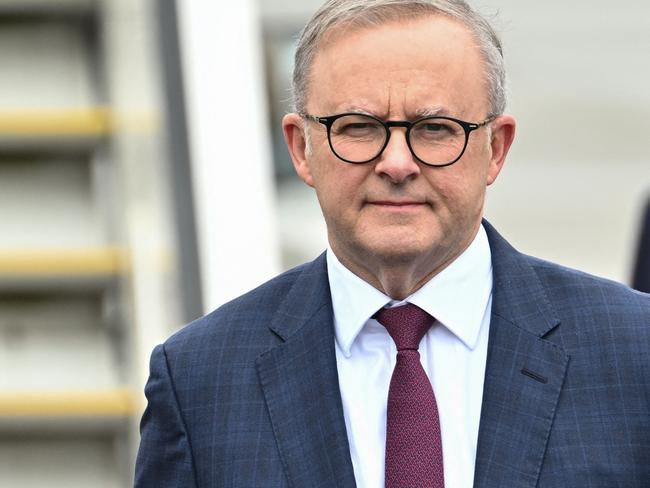
CHEAPER MEDICINES & ACCESS TO DOCTORS
The cost of many common prescriptions has not only been cut by $12.50, but people with chronic conditions will be able to get two months’ worth of medicine for the price of one prescription from September.
The bulk billing incentive for doctors seeing kids aged under 16, pensioners and concession card holders will also be tripled.
CLIMATE
Labor’s pledge to achieve net zero emissions by 2050, and its 2030 goal of a 43 per cent cut, were among some of the first bills passed by the new government.
WHERE THEY’VE BEEN ACCUSED OF BREAKING PROMISES
SUPERANNUATION
What started as a kite flying exercise on the sustainability of superannuation tax concessions on the budget quickly became government policy, with Labor proposing to double the tax on superannuation earnings to 30 per cent for balances above $3m from 2025.
Prior to the election, Treasurer Jim Chalmers said Labor would “maintain the system”. He has since defended the change as “modest”.

URGENT CARE CLINICS
Labor committed $135m to establish 50 new urgent care clinics across Australia, including 10 in Victoria.
But last week it was revealed that only two of the 10 clinics promised in Victoria would be new, with the federal government to take over funding eight of the state’s operational priority primary care centres from July 1.
All 50 urgent care clinics were planned to be “up and running” come July. However, the majority are due to be established in 2023-24.
NURSES AROUND THE CLOCK
A registered nurse onsite 24 hours a day was meant to be a mandatory requirement for residential aged care facilities from July 2023.
But Aged Care Minister Anika Wells in March admitted that 5 per cent of facilities would not meet the deadline.
Those located in rural and remote areas, have 30 or fewer places, or alternative clinical care in place can apply for an exemption.
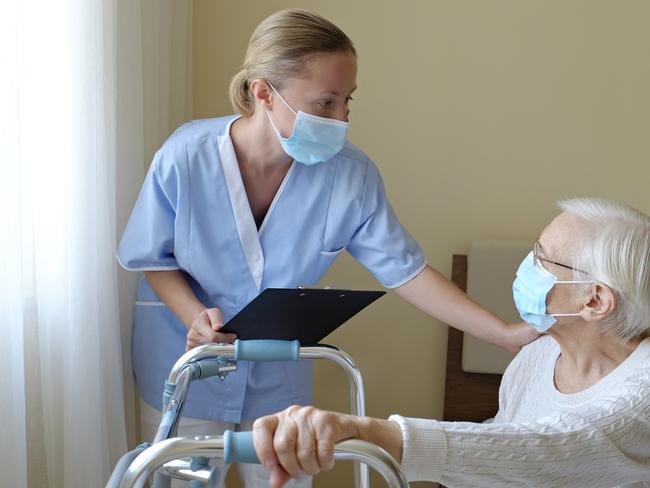
DANGER, WATCH OUT
The policies and actions they didn’t tell us were coming
INFRASTRUCTURE
After more than $1bn in cuts to infrastructure projects across Victoria the future of remaining projects that were not election commitments are under a cloud with the findings of a 90-day review to determine their viability.
INDUSTRIAL RELATIONS
Multi-employer bargaining was not on the table at the election but was a major win for unions during Labor’s Jobs and Skills summit.
This means workers from multiple employers in the same industry could band together to call for higher wages and one enterprise agreement could be struck across the businesses.
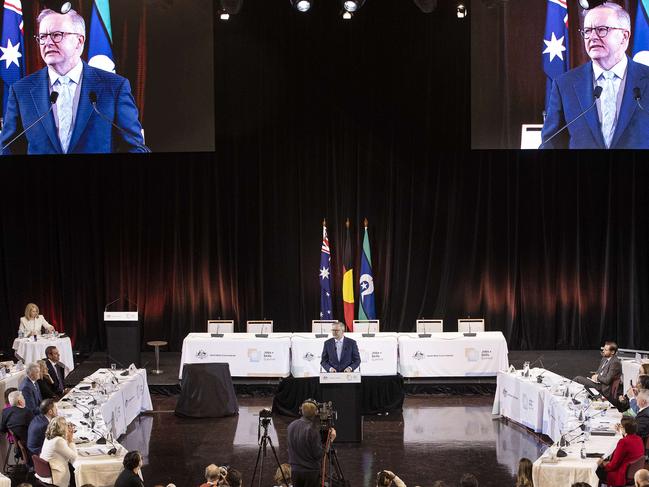
FUEL EMISSIONS STANDARDS
It wasn’t part of Labor’s official climate policy in a bid to prevent political attacks during the campaign but Labor will work with industry to develop a standard this year.
WHAT THEY’VE MADE PROGRESS ON
HOUSING
Labor is struggling to gain support from Senate crossbenchers to pass its $10bn Housing Australia Future Fund.
The signature housing policy committed to 30,000 new social and affordable houses nationwide over five years but the Greens have raised concerns that it will only invest the returns, which are capped at $500m.
Its Help to Buy scheme has also barely been mentioned since the election.
VOICE TO PARLIAMENT
Under its commitment to implement the Uluru Statement in full, Labor pledged to progress a referendum to constitutionally enshrine a Voice to Parliament. A key bill to hold the referendum still needs to be passed through both Houses, with the vote to be held between October and December this year.
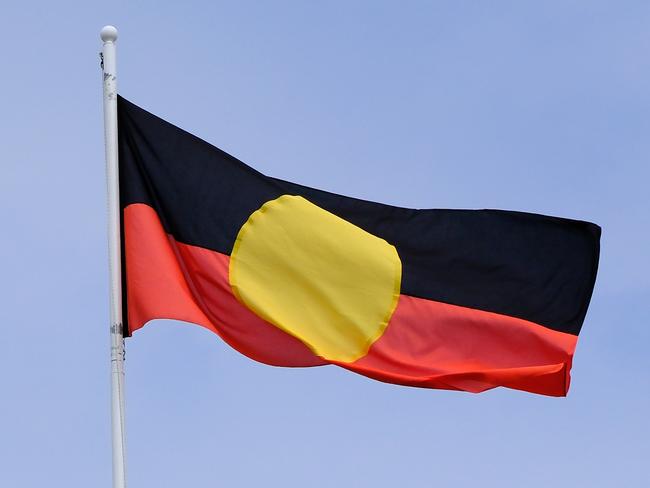
NDIS
Work is underway across all parts of Labor’s six-point plan to improve the NDIS.
The government plans to make $74bn in savings over the next decade, including $15.3bn over the next four years as the result of several initiatives to reduce forecast growth to 8 per cent annually come 2026.
POWER BILLS
Labor promised to slash electricity bills for families and businesses by $275 come 2025.
But the war in Ukraine and a cold snap last year created a perfect storm that drove up power prices in Victoria.
Labor’s May budget estimated that retail prices would soar by 10 per cent this year, down from earlier forecasts of 36 per cent.
It also contained $1.5bn energy bill relief package, which was matched by the states, to give five million low-income households a $500 rebate.





